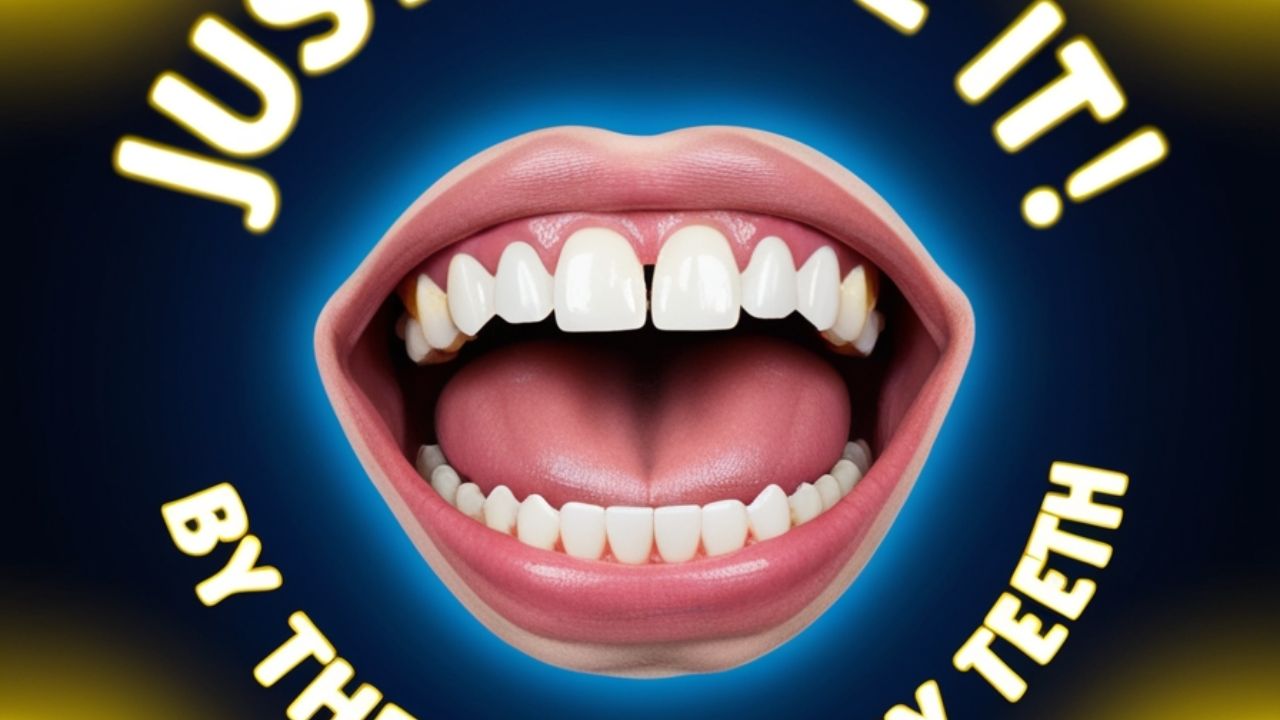The phrase by the skin of my teeth means someone escapes or succeeds at the very last moment. It shows how close a person comes to failing but still manages to make it through safely, almost like a lucky rescue.
Long ago, by the skin of my teeth came from the Bible, where a man named Job spoke about barely surviving his troubles. The words painted a picture of holding on to life with almost nothing left, showing deep strength and hope.
Today, people use by the skin of my teeth when they nearly miss something important, like catching a bus or passing a test. It reminds everyone that even small victories matter, especially when effort and courage make the difference.
What Does “By the Skin of My Teeth” Really Mean?
The phrase by the skin of my teeth means someone just manages to do something in time. It describes a narrow escape or a close success. It shows that even small wins can be very important when things seem hard.
People use by the skin of my teeth to talk about tight moments, like finishing homework right before school or catching a ball just before it falls. It reminds everyone that effort and courage help even when time is almost gone.
Key Takeaways:
- The phrase by the skin of my teeth means just barely escaping or succeeding in something difficult.
- It comes from the Bible’s Book of Job, where it described surviving by the smallest margin.
- People use it to express close calls, narrow wins, or last-second success.
- The idiom is figurative, not literal—teeth have no skin.
- It reminds everyone that even a tiny bit of effort or luck can make a big difference.
Examples in Sentences:
- I caught the last bus home by the skin of my teeth before it drove away.
- He passed the final exam by the skin of his teeth after studying all night.
- They won the match by the skin of their teeth with a goal in the final minute.
- She reached the airport by the skin of her teeth just before the gate closed.
- We avoided the storm by the skin of our teeth as we drove to safety in time.
See also 24 Hours’ Notice: The Correct Grammar Explained Simply
Why This Idiom is So Peculiar
The idiom by the skin of my teeth sounds strange because teeth have no skin. This funny image helps people remember it easily. It shows something almost impossible, like winning or escaping when there is almost no chance left.
Writers and speakers use by the skin of my teeth to make their stories lively. The unusual words create strong pictures in the mind. It helps readers feel how close someone came to losing but still found a way to succeed.
Linguistic Significance:
- The phrase by the skin of my teeth is idiomatic, meaning its sense cannot be understood from the words alone.
- It uses hyperbole to show how extremely close success or escape was.
- The expression’s paradoxical image makes it memorable and powerful in speech.
- Its figurative meaning has stayed the same for centuries, proving language’s lasting creativity.
- It reflects how English idioms often mix humor, exaggeration, and emotion to express human experiences.
The Biblical Origins of “By the Skin of My Teeth”

The saying by the skin of my teeth first appeared in the Bible in the Book of Job. It showed a man who lost everything but still survived. His words told how close he came to losing his life yet stayed strong.
Over many years, by the skin of my teeth turned into a way of showing hope and courage. People began using it to describe surviving tough times. It reminds everyone that strength and faith can help even in the hardest moments.
Breaking It Down:
- The phrase first appeared in the Book of Job, showing extreme pain and survival.
- Job spoke about keeping life itself when everything else was gone.
- The words meant barely hanging on, not giving up.
- Later, translators turned it into by the skin of my teeth in English.
- Over time, it came to mean surviving or succeeding at the last possible moment.
How the Idiom Evolved Through History
| Era | Use of the Idiom |
| 500 BCE | Hebrew scriptures (Book of Job) – literal suffering and escape. |
| 1500s | Early English translations of the Bible (e.g., Geneva Bible, King James Bible). |
| 1800s | Found in Victorian novels and sermons to describe close calls. |
| 1900s | Entered common speech, political rhetoric, and journalistic writing. |
| 2000s–Today | Still widely used in media, pop culture, and daily conversations. |
“By the Skin of My Teeth” in Modern Language and Culture
This idiom pops up everywhere – from news reports to sports commentary to courtroom dramas.
Where You’ll Hear It:
- In news reports, describing close election results or last-minute rescues.
- During sports commentary, when a team wins or qualifies by a tiny margin.
- In daily conversations, about catching a bus, train, or finishing homework in time.
- In movies and TV shows, showing tense or dramatic escapes from danger.
- In storytelling or speeches, to add emotion, suspense, and human connection.
Case Study: 2000 U.S. Presidential Election
- The 2000 election between George W. Bush and Al Gore was one of the closest in U.S. history.
- The final result depended on the state of Florida, where the margin was extremely small.
- Bush won Florida by just 537 votes, deciding the entire presidency.
- News headlines used the phrase by the skin of his teeth to describe this razor-thin victory.
- The case became a classic example of winning through the narrowest possible margin.
How Writers and Creators Use the Phrase
The phrase holds weight in creative writing, too. It adds intensity, stakes, and humanity to a moment.
Literature:
- The phrase by the skin of my teeth appears in many classic and modern literary works.
- John Irving’s play “The Skin of Our Teeth” (1942) uses it to show human strength and survival.
- Writers use it to express near loss, danger, or emotional struggle in stories.
- It adds depth by showing characters overcoming impossible odds.
- The idiom remains a favorite among authors, poets, and storytellers for its vivid, timeless meaning.
Film & TV:
- The phrase by the skin of my teeth often appears in action or thriller movies.
- It describes heroes escaping danger or winning just in time.
- Writers use it in scripts to create tension and excitement.
- Shows and films highlight this idiom during close calls or last-minute rescues.
- It helps audiences feel the relief and thrill of barely making it through danger.
Cultural Variations: Idioms With Similar Meanings
| Language | Equivalent Phrase | Translation / Meaning |
| French | “À un cheveu près” | “By a hair’s breadth” |
| German | “Mit knapper Not entkommen” | “Escaped by a narrow margin” |
| Spanish | “Por los pelos” | “By the hairs” (very narrowly) |
| Japanese | “紙一重で” (Kami hitoe de) | “By a paper-thin difference” |
| Arabic | “بشق الأنفس” (Bi shaq al-anfus) | “With the last breath” (barely surviving) |
Real-Life Moments That Fit the Idiom
Let’s put this idiom in context with real-world stories – times when people escaped disaster or clinched victory just barely.
True Examples:
- During the Apollo 13 mission, astronauts survived a space explosion and returned safely — truly by the skin of their teeth.
- Simone Biles qualified for the Olympic finals after a rare stumble, showing strength and focus.
- In the 2008 financial crisis, major banks escaped collapse through last-minute government help.
- A small village in Japan avoided a tsunami when residents evacuated seconds before it hit.
- A student passed the year-end exam with one extra mark, celebrating success by the skin of his teeth.
How to Use the Phrase Correctly

Using idioms correctly matters – especially if you’re writing for impact.
Do Use It When:
- Describing a narrow escape from danger or a close success.
- Talking about finishing something important just before time runs out.
- Sharing a story with suspense or high emotion to engage readers.
- Explaining how someone barely achieved a goal after hard work.
- Writing or speaking about real-life challenges that ended in success.
See also Accordion vs Accordian: Find the Right Spelling Fast
Avoid Using It When:
- The situation was not truly close or risky enough to justify the phrase.
- Writing technical, academic, or formal reports where idioms aren’t suitable.
- Describing events that ended easily or without struggle.
- The tone needs to stay serious, factual, or neutral.
- You want to avoid confusing young learners or non-native speakers with figurative language.
Grammar Tip:
- The phrase by the skin of my teeth usually follows an action or result.
- Structure it as: Subject + verb + by the skin of (my/his/her/their) teeth.
- Example: She finished the race by the skin of her teeth.
- Don’t change “skin” or “teeth”; the wording always stays the same.
- Use it in past tense stories to describe something narrowly achieved.
Why This Phrase Still Resonates
The idiom has staying power because it taps into a shared human experience: desperation, risk, and the thrill of barely escaping.
It Endures Because:
- The idiom by the skin of my teeth is vivid and easy to remember.
- It expresses a universal human feeling of barely escaping failure.
- Its strange wording makes it stand out in language and memory.
- People relate to its meaning through real-life challenges and triumphs.
- It adds emotion and drama, making stories more powerful and memorable.
Final Thoughts
The phrase by the skin of my teeth teaches how close success and failure can be. It shows that even small wins mean a lot when someone works hard. It tells that courage and hope can turn tough moments into strong lessons.
People everywhere use by the skin of my teeth to share stories of near misses. It helps others see that effort always matters. Even when things seem lost, staying calm and trying again can still bring a happy ending.
FAQs
What does the phrase “by the skin of my teeth” mean?
It means barely escaping failure or danger—succeeding by the smallest possible margin.
What does the Bible mean by the skin of your teeth?
In Job 19:20, it signifies surviving with extreme difficulty or by the narrowest chance.
Where does the phrase no skin off my teeth come from?
It’s an idiom meaning something doesn’t affect or bother you at all.
What does bite the skin of your teeth mean?
It’s rarely used; it suggests enduring something tense or narrowly avoiding disaster.

Join Bibcia on a journey to master English grammar. Discover easy lessons, writing tips, and practical examples designed to make learning grammar simple and effective.










